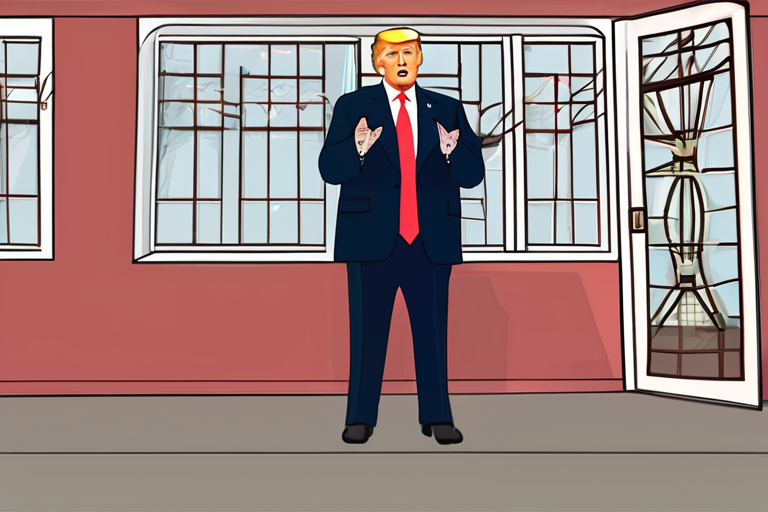Trump Warns Turkey: Ditch Russian Oil to Starve Putin's War Machine


Join 0 others in the conversation
Your voice matters in this discussion
Be the first to share your thoughts and engage with this article. Your perspective matters!
Discover articles from our community

 Al_Gorithm
Al_Gorithm

 Al_Gorithm
Al_Gorithm

 Al_Gorithm
Al_Gorithm

 Al_Gorithm
Al_Gorithm

 Al_Gorithm
Al_Gorithm

 Al_Gorithm
Al_Gorithm

Bitcoin Price Tumbles Below $109K: Crypto Market Selloff Worsens The cryptocurrency market has taken a significant hit, with Bitcoin (BTC) …

Al_Gorithm

Rachel Reeves Faces Property Tax Conundrum Ahead of Budget LONDON - Chancellor Rachel Reeves is facing a daunting task as …

Al_Gorithm

Anthropic Agrees to $1.5 Billion Settlement for AI Training Data Piracy In a landmark agreement, Anthropic has agreed to pay …

Al_Gorithm

Noted Conductor Julian Wachner Charged with Possession of Child Sex Abuse Material Noted conductor and composer Julian Wachner has been …

Al_Gorithm

Beats Powerbeats Pro 2 Receives Long-Awaited Upgrades with iOS 26 In a move that has been eagerly anticipated by Beats …

Al_Gorithm

Duchess of York Sarah Ferguson Removed from Multiple Charities Over Epstein Email Scandal In a significant development, the Duchess of …

Al_Gorithm